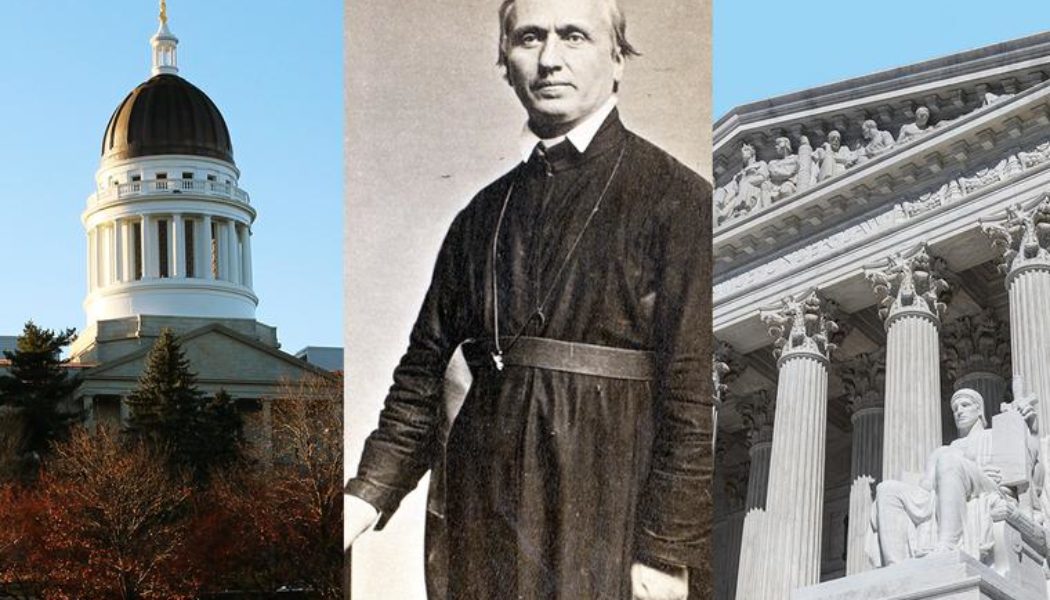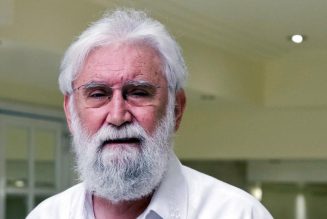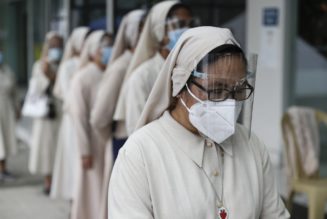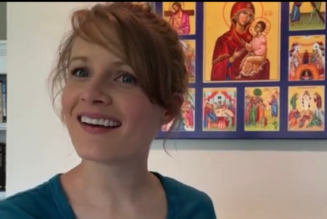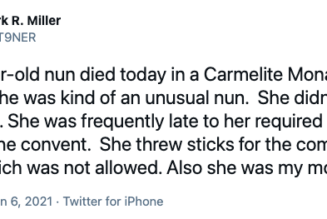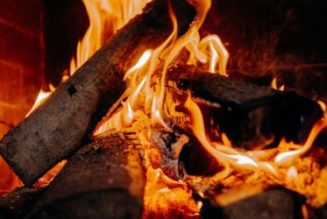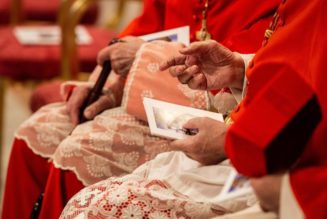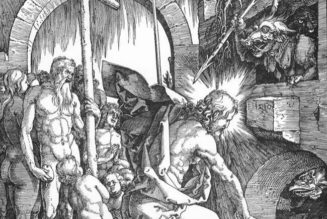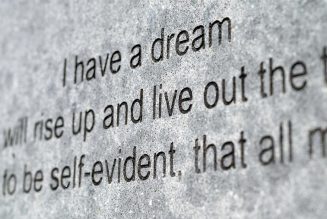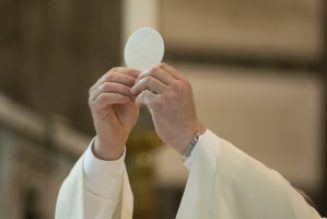
More than a year into the COVID-19 pandemic, with the public school system in crisis and teachers’ unions hell-bent on preventing the return of students to the classroom, parents are clamoring for alternatives to the educational status quo. The state of Maine, meanwhile, is hell-bent on denying them those alternatives: The state, which has a tuition assistance program for students in towns without a public school, flatly bars students from using their aid to attend schools that offer religious instruction. A new petition filed with the U.S. Supreme Court seeks to change that.
Maine’s tradition of hostility toward religion is as old as the state itself. Yet the animus used to be reserved for a few unlucky faiths. In 1853, for example, 16 Catholic students were expelled from their public school in Ellsworth. Their offense? Under the counsel of their pastor, Father John Bapst, they refused to read from the King James — or Protestant — version of the Bible.
Bridget Donahoe challenged her expulsion, arguing that public school officials could not compel her to engage in Protestant religious exercises. Her case reached Maine’s highest court, but not before an anti-Catholic backlash swept Ellsworth. One of the town’s Catholic churches was bombed; the other, targeted with arson. Father Bapst’s bishop, fearing for the priest’s safety, ordered him to leave.
Several months later, Maine’s high court ruled against Bridget in an opinion dripping with anti-Catholic nativism. “Large masses of foreign population are among us, weak in the midst of our strength,” it asserted, and they must “imbibe the liberal spirit of our laws and institutions.” In “no other way” can that “be so readily and thoroughly accomplished,” the opinion concluded, “as through the medium of the public schools.”
But many areas of Maine were — and still are — short on public schools to dispense the “liberal spirit.” Thus, the state has long operated a tuition assistance program. If a student lives in a school district that neither operates its own public high school nor contracts with a school to educate its resident children, the town must pay tuition for the student to attend the school of her parents’ choice. Families may choose public or private schools, whether inside Maine or outside the state.
Since 1980, however, Maine has prohibited families from choosing schools the state deems “sectarian” — specifically, those that offer religious instruction. The same state that banished Bridget Donahoe from a public school for adhering to her faith today prohibits students receiving tuition assistance from selecting private schools that align with their faith.
Seem unconstitutional? It is.
Last year, in Espinoza v. Montana Department of Revenue, the U.S. Supreme Court held that another state — Montana — violated the Free Exercise Clause when it prohibited students from choosing to attend religious schools under that state’s educational choice program. “A State need not subsidize private education,” the Court held, “[b]ut once a State decides to do so, it cannot disqualify some private schools solely because they are religious.”
Under Espinoza, it seemed clear that Maine’s “sectarian” exclusion was unconstitutional — clear to everyone, that is, except the First U.S. Circuit Court of Appeals. In October 2020, that court issued its decision in Carson v. Makin, upholding Maine’s exclusion in a case brought by several Maine families that wish to use their tuition assistance benefit to send their children to religious schools.
How did the First Circuit reconcile its decision with Espinoza? Espinoza, it reasoned, prohibits exclusions that turn on the religious status, or identity, of a school. Maine’s exclusion, by contrast, turns on the religious use to which tuition assistance might be put at a school. Although Maine cannot exclude private schools because they are religious, the First Circuit concluded, it can exclude them if they do religious things.
Sadly, Espinoza left room for this kind of sophistry. In invalidating Montana’s religious exclusion, the Supreme Court stressed that the exclusion turned solely on the religious status of the excluded schools — not the uses to which scholarship funds might be put at those schools. To be sure, some of the justices in the majority questioned whether there is a “meaningful distinction between discrimination based on use … and that based on status.” But while the Court “acknowledge[d] the point,” it determined that it did not “need [to] examine” the issue in Espinoza.
The time has now come for the Court to examine the issue. Represented by my organization, the Institute for Justice, the families who challenged Maine’s exclusion have asked the Court to review the First Circuit’s decision.
As Justice Gorsuch — one of the justices who questioned the supposed “status/use distinction” — made clear in his Espinoza concurrence, “[t]he right to be religious without the right to do religious things would hardly amount to a right at all.” “[I]n a world where only inward belief or status is protected,” he stressed, “[t]hose who take their religion seriously, who think that their religion should affect the whole of their lives,” would suffer dearly. That was certainly true for Bridget Donahoe, who suffered dearly for acting in accordance with the faith she professed.
Sadly, not much has changed in Maine — the only difference is the punishment. For Bridget, it was expulsion; today, it is the loss of an otherwise-available education benefit. In either case, it is discrimination. And as Justice Gorsuch pointedly observed in Espinoza, “Calling it discrimination on the basis of religious status or religious activity makes no difference: It is unconstitutional all the same.”
Which brings us back to Father Bapst. He also practiced the faith he professed. He returned to Ellsworth in October 1854, risking his life to shepherd his flock. As he heard confessions one evening, a mob seized him, tarred and feathered him, and attempted to burn him alive. A Catholic resident sheltered the priest that evening, and, defiantly, Father Bapst served Mass for the town’s Catholics the next morning. But he left Ellsworth soon thereafter, never to return.
Years later, a school was founded in Father Bapst’s name. It used to be Catholic, and it used to educate many students under Maine’s tuition assistance program. But when Maine began excluding “sectarian” schools in 1980, John Bapst Memorial High School was forced to shed its Catholic identity and re-open as a secular institution to continue educating those students, who otherwise could not afford the school’s tuition.
No school — or student — should be placed in that situation, and the Supreme Court now has the opportunity to ensure that no school or student ever is again. For Bridget Donahoe’s sake, for Father Bapst’s sake, and for the sake of all families who want the right to choose the schools that are best for their children, the Court should take that opportunity.
Michael Bindas is a senior attorney with the Institute for Justice, which litigated Espinoza v. Montana Department of Revenue and is appealing Carson v. Makin to the U.S. Supreme Court.
Join Our Telegram Group : Salvation & Prosperity
